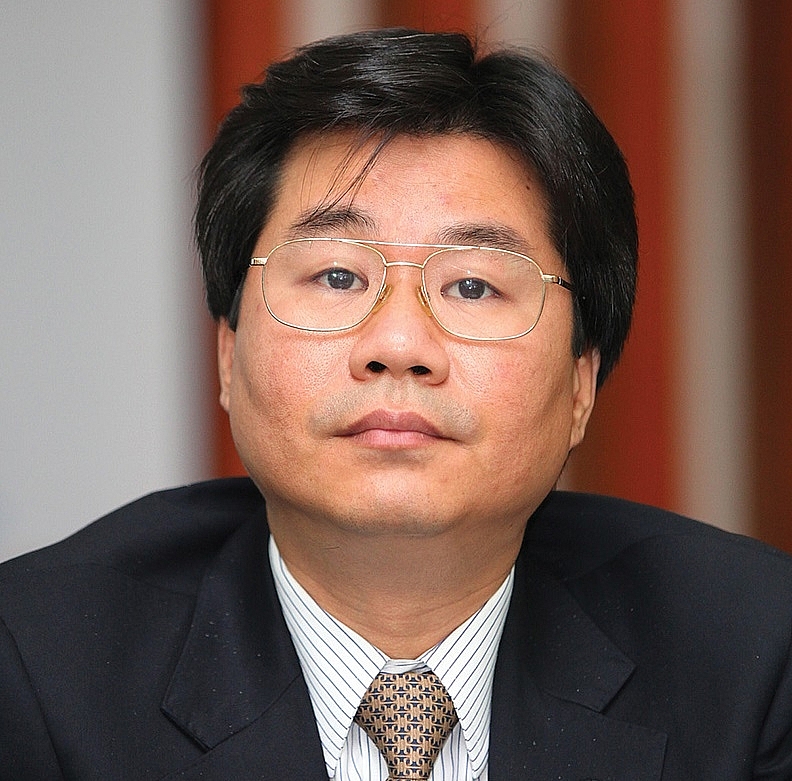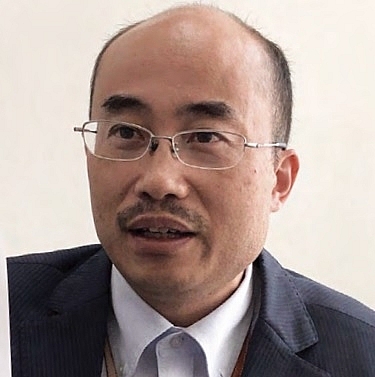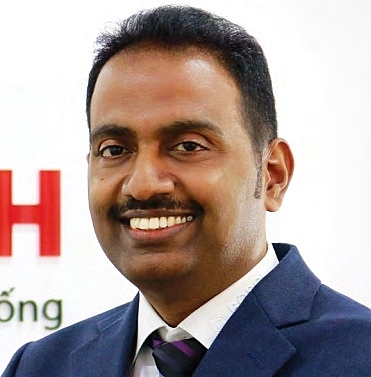Galvanising development of local groups with FDI
 |
| By Do Nhat Hoang - Director general Foreign Investment Agency |
Over the last two years, we have had at least three chances to receive large foreign direct investment (FDI) waves. The first time was when Vietnam was negotiating for the Comprehensive and Progressive Agreement for Trans-Pacific Partnership (CPTPP). A lot of deep-pocketed investors arrived in Vietnam, including Chinese ones, aiming to take advantage of the CPTPP and export goods to members of the agreement.
The second time was when the US-China trade war begun, which impacted all investors overseas in terms of export markets and supply chains. They had to restructure the supply chains and strategies towards manufacturing and exporting to the US market. Amid these changes, Vietnam became a good destination for them.
The third time was when the COVID-19 pandemic broke out and froze most economies. Investors realised that it was risky to depend totally on China, and global supply chains broke quickly. So most investors decided to restructure and diversify supply chains.
Leaving China, many set eyes on India, Indonesia, Vietnam, East European countries, and Mexico. Therefore, we have to figure out a way to increase the attractiveness of Vietnam to absorb this FDI.
In order to do this, we must first define incentives related to land and infrastructure for foreign-invested projects to establish factories according to a master plan, not a fragmented one that might be split into different versions in different localities. For example, a lot of investors are willing to base themselves in Bac Ninh, Bac Giang, Dong Nai, and Binh Duong provinces.
Second, Resolution No.50-NQ/TW on improving the quality and effectiveness of foreign investment cooperation until 2030 highlights the quality of labour force, which takes time to train and improve. Therefore, we are paying a lot of attention to human resources development.
According to the Ministry of Labour, Invalids, and Social Affairs, there are 40,000 employees annually coming back from overseas, where they were previously trained. We need a specific plan to gather and contact them, especially those from Japan, South Korea, and Europe – all coming with skills and a good understanding about industrial work processes. Ideally, we can match these labourers with the right location and the right investor for maximum efficiency.
Third, the legal framework for foreign investment is currently being perfected. The two major laws for investors, the amended Law on Enterprises and the amended Law on Investment, were approved by the National Assembly. Both are a foundation for investors to do business here, as well as offer opportunities for Vietnam to mobilise and lure in more high-quality investment projects.
In fact, after decades of mobilising FDI, the country’s ability to absorb particularly huge investments is not high. We have already acknowledged this issue and are trying to resolve this by issuing Resolution 50. Ideally, FDI should be focused on applied high technology, and should be able to spread and stimulate local businesses to improve and develop further. The amended Law on Investment also highlights that investors should pledge to welcome local enterprises taking part in their supply chains if they want to enjoy the incentives of the Vietnamese government. This condition aims to link FDI and local manufacturing with training human resources.
| Hirai Shinji - Chief representative, JETRO in Ho Chi Minh City
Several Japanese companies initially began to invest money in Vietnam as far back as the early 1990s. Previously, most Japanese manufacturing companies only saw Vietnam as a place for production, endowed with a young and skilful labour force. However, recently more and more of them, whether manufacturing or not, have begun to see Vietnam as a market with growing consumption as well. They expect that their business will grow together with the Vietnaese economy. Recently the companies already operating in Vietnam have started to expand production. This is evidence of their faith in the economic development of this country. The geographical distribution of Japanese companies has also been expanding. Provinces adjacent to Ho Chi Minh City such as Dong Nai, Binh Duong, and Long An have been popular, but others such as the Mekong Delta are now also more often selected. Japanese companies are expected to further contribute to the regional development of Vietnam through various factors such as quality of investment, high technology, and also in environmental protection. Marko Walde - Chief representative, Delegation of German Industry and Commerce in Vietnam
Vietnam has benefited due to companies moving manufacturing to Vietnam as costs in China started to increase and the US-China trade war has accelerated the process. As the sector matures, the stakes for industry players will increase when Vietnam solidifies its position as a manufacturing destination. Foreign direct investment (FDI) helps transform Vietnam from a low income, commodity-based economy to an increasingly dynamic mixed economy via the transfer to technology, capital, skills, and access to international markets. The economy has become more diversified with a shift away from a dependence on unprocessed commodities to the assembly and production of increasingly more sophisticated manufactured goods. More generally, FDI is helping to enhance both the visibility and reputation of “Made in Vietnam” products and services in international markets. German investors in particular bring their well-known technology in management and training to this country, allowing more value-added production and less waste of material and resources, and supporting local companies in accelerating the modernisation process. Alex Crane - Managing director, C&W Vietnam
The pandemic has not dampened our firm’s desire to grow in Vietnam. In fact, when compared with other countries, Vietnam is viewed as a higher priority destination to invest. Our firm is looking at deepening our core capabilities and expanding. In real estate, there is obvious growth in logistics and manufacturing and also in more tech-focused companies which will be critical in office markets. We still need some legal frameworks to be streamlined and there remain bottlenecks in approvals. These are long-standing items the government is aware of and will not have changed post-pandemic. One thing the pandemic has brought is a heightened awareness of health. This may in the future lead to foreign enterprises having higher demands for property/facility infrastructure and management and controls on cleanliness. That being said, in its incredibly swift and strong action against the pandemic, the government has already indirectly sped up Vietnam’s future growth. The world has taken notice of the success and will more commonly look to Vietnam as a source for products, a destination to visit, and a location for jobs and for capital. Sami Kteily - Executive chairman, PEB Steel
The main area that achieved good growth in 2020 despite the pandemic and partial lockdown was in agriculture, forestry, and fisheries. Overall, these rely on a large number of low-skilled workers. If these companies and factories operating here were to invest in new technology, they can improve efficiency and achieve larger manufacturing output while lowering the number of workers used in production. By doing so, they can either utilise the excess workers in new expansion plants or they can release some of their workers to the labour market for the benefit of other industries that suffer from labour shortages. In all cases, investing in new technology is always more economic and increases company profits. I also understand that some of the challenges facing new investors coming into Vietnam involve unavailability of workers, so they end up going to other countries like Indonesia, Bangladesh or even Myanmar, where labour is more abundant at a similar if not lower cost. I think the Vietnamese government can set regulations to attract only high added value industries by offering them incentives over a period of 5-10 years. Guru Mallikarjuna - Managing director, Bosch Vietnam
Vietnam is enjoying key advantages to attract substantial FDI flows due to its attractive tax regime, stable political environment, open trade policies, and a young yet low-cost labour force. The country provides vast future market opportunities for German investors and in return German products, which are known for their high quality, have a good potential to succeed here. Digitalisation is transforming the world and Vietnam is highly recommended to embrace this, especially amid COVID-19. The government has been putting a tremendous effort into reforming admin procedures via digital transformation; however, the pandemic has significantly sped up transition from the physical to the digital world. To embrace this new virtual-oriented reality, it is expected that country must continue to invest in IT infrastructure, especially in telecommunications, 5G, or cloud technology in order to boost FDI. To further facilitate trade and business operations, digitalisation can be further embedded through automation and operation optimisation using data analysis. This would help to significantly increase the productivity of Vietnamese factories and of the economy in general. |
What the stars mean:
★ Poor ★ ★ Promising ★★★ Good ★★★★ Very good ★★★★★ Exceptional
 Tag:
Tag:
Themes: Safe and Sound Vietnam
Related Contents
Latest News
More News
- Hermes joins Long Thanh cargo terminal development (February 04, 2026 | 15:59)
- SCG enhances production and distribution in Vietnam (February 04, 2026 | 08:00)
- UNIVACCO strengthens Asia expansion with Vietnam facility (February 03, 2026 | 08:00)
- Cai Mep Ha Port project wins approval with $1.95bn investment (February 02, 2026 | 16:17)
- Repositioning Vietnam in Asia’s manufacturing race (February 02, 2026 | 16:00)
- Manufacturing growth remains solid in early 2026 (February 02, 2026 | 15:28)
- Navigating venture capital trends across the continent (February 02, 2026 | 14:00)
- Motivations to achieve high growth (February 02, 2026 | 11:00)
- Capacity and regulations among British areas of expertise in IFCs (February 02, 2026 | 09:09)
- Transition underway in German investment across Vietnam (February 02, 2026 | 08:00)



























 Mobile Version
Mobile Version